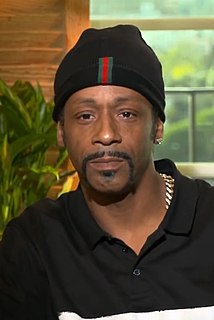A Quote by William Congreve
Turn pimp, flatterer, quack, lawyer, parson, be chaplain to an atheist, or stallion to an old woman, anything but a poet; for a poet is worse, more servile, timorous and fawning than any I have named.
Related Quotes
A true poet is more than just a man who can write a poem with a pen. A true poet writes poetry with his very life. A true poet doesn't use poetic devices to con the heart of a woman but uses the beauty of all that is poetic to serve, cherish, and express love to the heart of a woman. Just as a true warrior is not a conqueror of femininity but a protector of femininity, a true poet is not just a wooer of a woman's heart but one who knows how to nurture and plant love in a woman's heart. Simply put, a true poet is a man who knows how to be intimate with a lover - first and foremost with Christ.
I certainly was surprised to be named Poet Laureate of this far-out city on the left side of the world, and I gratefully accept, for as I told the Mayor, "How could I refuse?" I'd rather be Poet Laureate of San Francisco than anywhere because this city has always been a poetic center, a frontier for free poetic life, with perhaps more poets and more poetry readers than any city in the world.
One of the appeals of William Carlos Williams to me is that he was many different kinds of poet. He tried out many different forms in his own way of, more or less, formlessness. He was also a poet who could be - he was a love poet, he was a poet of the natural order and he was also a political poet.
Nowadays when a poet with one privately printed book can have his next three years taken care of by a Guggenheim fellowship, a Kenyon Review fellowship, and the Prix de Rome, it is hard to remember what chances the poet took in that small-town world, how precariously hand-to-mouth his existence was. And yet in one way the old days were better; [Vachel] Lindsay after a while, by luck and skill, got far more readers than any poet could get today.
There is this tendency to think that if you could only find the magic way, then you could become a poet. "Tell me how to become a poet. Tell me what to do." . . . What makes you a poet is a gift for language, an ability to see into the heart of things, and an ability to deal with important unconscious material. When all these things come together, you're a poet. But there isn't one little gimmick that makes you a poet. There isn't any formula for it.
People probably long for something genuinely personal in a society where the personal is often indistinguishable from the "personalized." Maybe the poetry audience member is searching for his or her own "personal space" and they expect the poet to be a sort of avatar of the private life. But that sort of representation is distasteful to me. Asking a poet to represent the personal life is, paradoxically, to turn the poet into something other than a person.
I know that in a poem, even when the speaker is speaking from the poet's experience, there's always something that's borrowed, some authority that sits outside of the poet that the poem has claimed. There's a dramatic pitch that makes the speaker capable of saying something more courageous or stranger or simply other than what the poet would be able to say.







































